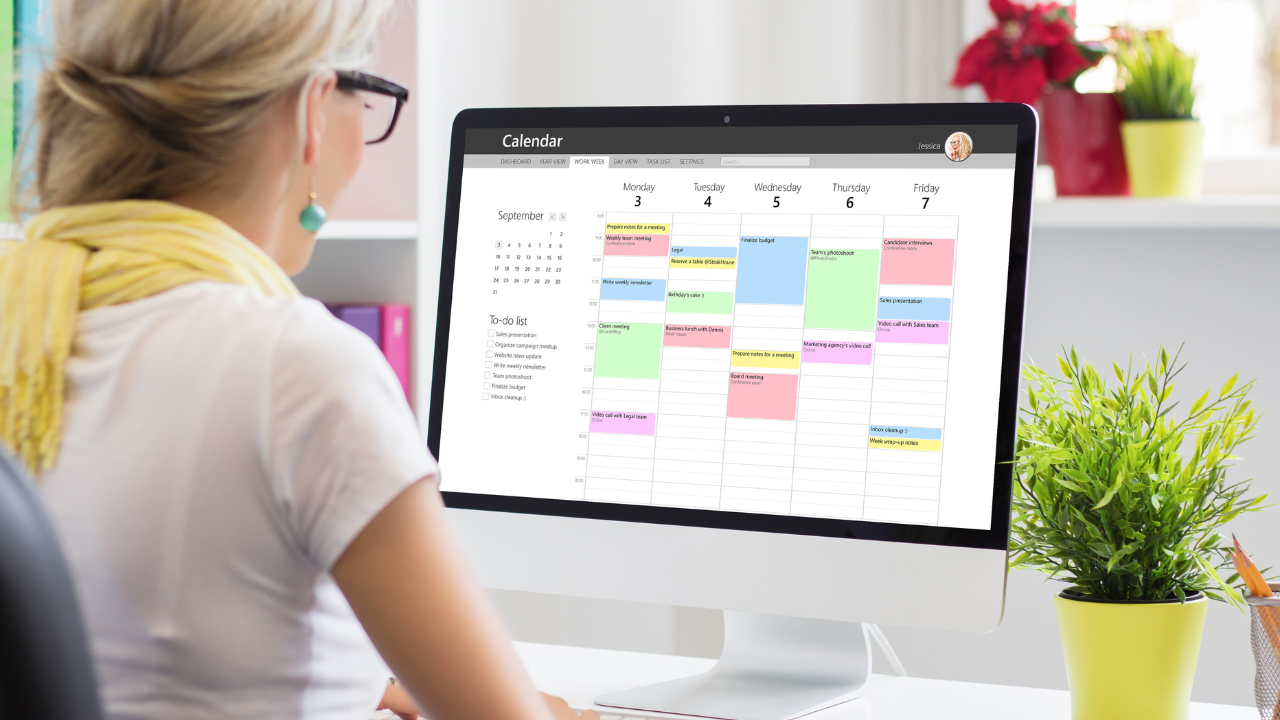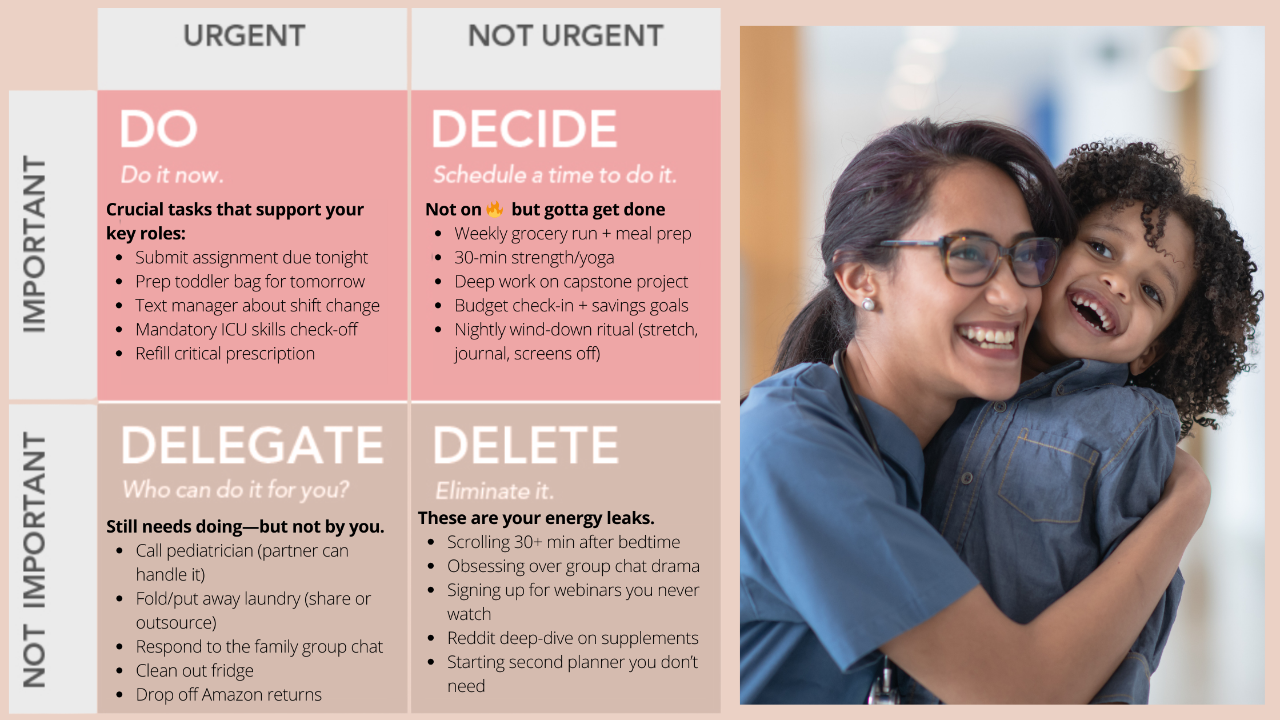Before You Pick Up “Just One More” Shift… Read This

Sign up for our free monthly group coaching calls HERE! It's a soft reset for the busy life of women in healthcare!
Let’s be honest—how many times have you said:
“Just one more shift…”
…thinking it would give you a little breathing room?
I get it.
I used to say yes to every extra shift I was offered. Because I thought more hours meant more stability. More freedom. More control.
But here’s what I learned the hard way:
Overworking to fix your finances does not work.
It guarantees you’ll burn out.
BTW, if you're ready to stop living in survival mode and start building a life that actually feels good, grab my free [Financial Health Self-Audit Guide for Nurses] here.
So before you pick up that next shift, ask yourself:
1️⃣ Am I doing this for peace… or panic?
I used to tell myself I was being smart. Responsible.
But deep down, I was scared.
Scared of my bank balance.
Scared of falling behind.
Scared of what would happen if I said “no.”
2️⃣ Will this shift support me… or just drain...
Why Boundaries Matter: Burnout Recovery for Women in Healthcare

Sign up for our free monthly group coaching calls HERE! It's a soft reset for the busy life of women in healthcare!
I used to believe boundaries were for people who had unusually pleasant circumstances.
The ones with quiet jobs and flexible hours.
Not the ones like me—with 12-hour shifts, clinicals, a side hustle, and a body running on cortisol and willpower.
Because when everyone is telling you you're killing it, it's easy to ignore the truth: You're actually burning out.
BTW, if you're ready to stop living in survival mode and start building a life that actually feels good my WEEKLY BLISS PLANNER is such a helpful, simple place to start!
Back when I was working full-time in the ICU, finishing NP school, and juggling clinicals, I had nothing left in the tank.
I told myself I didn’t need boundaries—I just needed to push through.
But my body told a different story: anxiety, racing heart, insomnia.
Eventually, I realized this truth: If I didn’t learn how to protect my energy and...
Eisenhower Matrix for Burned Out Women in Healthcare

Sign up for our free monthly group coaching calls HERE! It's a soft reset for the busy life of women in healthcare!
How to Prioritize When You’re Drowning: The Eisenhower Matrix for Women in Healthcare
BTW, if you're ready to stop living in survival mode and start building a life that actually feels good, grab my free All Shift Mindfulness Self Care Plan here.
You’re juggling ICU shifts, graduate school deadlines, a toddler, a home, and a body that’s running on caffeine and willpower. You don’t have time to read another productivity book. You need an actual system that filters your tasks and protects your peace.
Enter: The Eisenhower Matrix.
Made famous by President Dwight Eisenhower and popularized in modern behavior science by James Clear, this 2x2 decision-making tool helps you separate the urgent from the important, the noise from the actual priorities.
Here’s what using this might look like for a part-time ICU nurse who’s also in NP school, raising a toddler, holding down 50%...
Why Mindfulness Trainings Alone Won’t Fix Healthcare Burnout

Sign up for our free monthly group coaching calls HERE! It's a soft reset for the busy life of women in healthcare!
BTW, if you're ready to stop living in survival mode and start building a life that actually feels good, grab my free 10 Simple All-Day Mindfulness Practices.
A hospital recently brought me in—an NP and burnout coach—to lead a Mindfulness in Healthcare workshop for Nurses Week.
It was scheduled during work hours.
You can probably guess what happened…
ZERO nurses showed up.
Not because they didn’t care.
Not because they weren’t interested.
But because they couldn’t leave the floor.
Because patient loads were full.
Because no one had coverage.
Because that’s the system.
And honestly? I wouldn’t have gone either.
You can’t heal in the same environment that’s burning you out.
You can’t regulate your nervous system in a place that doesn’t let you rest.
And you can’t access mindfulness when you haven’t even had lunch.
Burnout recovery isn’t just about breathing deepe...
The Secret Nervous System Reset Every Woman in Healthcare Needs

Sign up for our free monthly group coaching calls HERE! It's a soft reset for the busy life of women in healthcare!
Want to know my nervous system secret weapon for working in healthcare?
Spoiler: It’s not more coffee.
It’s not quitting your job.
And no, it’s not some $90, 90-minute morning routine either.
It’s way simpler than that.
And if you’re a nurse, NP, or any woman working in the chaos of healthcare… this one’s for you.
This is something I learned after I had been a nurse for years, through my yoga training—
but I wish it had been taught in nursing school from day one.
The way you breathe has a massive impact on how you feel throughout the day.
Subconsciously holding your breath, shallow chest breathing, or quick, anxious exhales?
That can amplify the very stress you’re trying to survive.
Slow, deep, belly breathing—diaphragmatic breathing— is the simplest, most accessible nervous system hack you have.
It can help you stay calm and grounded, even when your unit feels lik...
Why Slowing Down Helps Women in Healthcare Succeed

Sign up for our free monthly group coaching calls HERE! It's a soft reset for the busy life of women in healthcare!
Why Slowing Down Helps Women in Healthcare Succeed
The more you slow down, the faster you go.
Sounds backwards, right?
But let me explain...
In healthcare, we’re conditioned to keep pushing.
To stay busy.
To hustle harder.
To always be doing something “productive.”
But if you’ve ever tried to run on empty for too long, you already know how this ends:
Burnout. Exhaustion. Resentment. And no real progress.
Rest Isn’t the Opposite of Progress—It’s the Prerequisite
I used to think stopping would slow me down.
But now I know: Rest, recovery, and boundaries are what keep me moving.
If I don’t take time to pull back and reset, nothing flows. I’m just spinning my wheels.
But when I intentionally slow down—when I sleep, reflect, plan, and restore myself—I move forward faster, with clarity and energy.
This isn’t laziness. It’s strategy.
This is what a soft life looks li...
